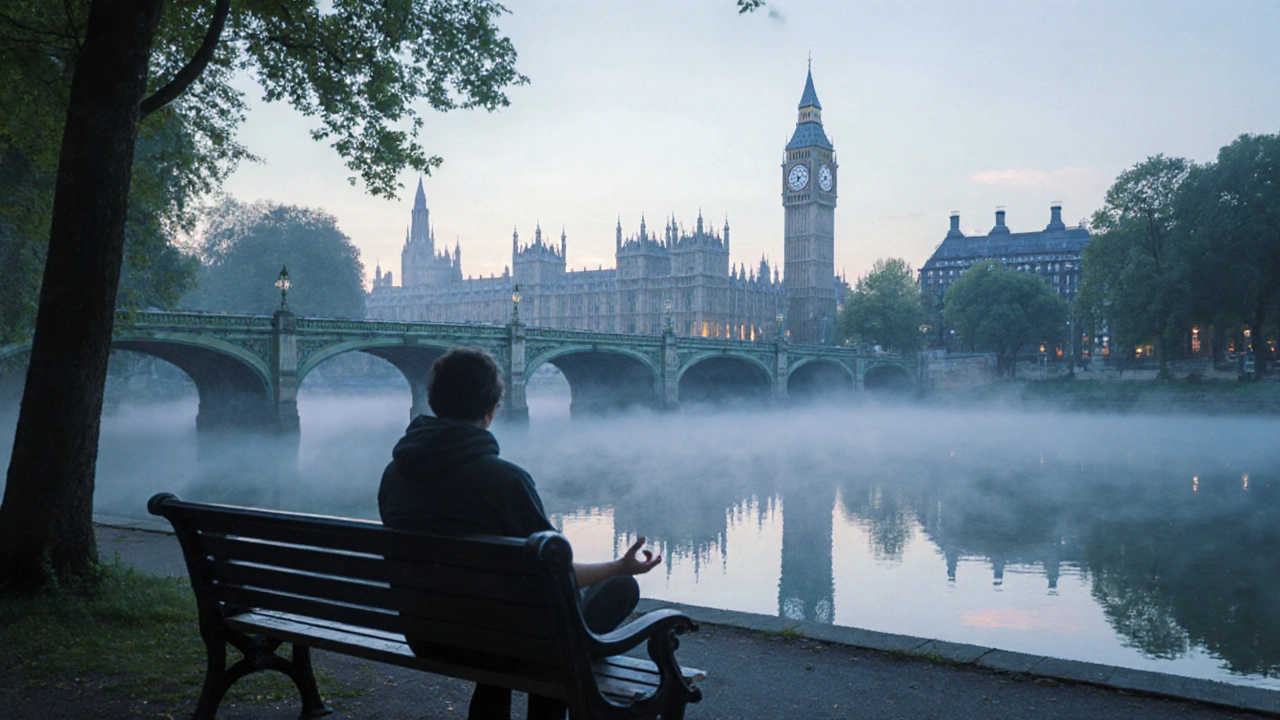
Health Anxiety Self-Assessment Quiz
1. Do you often worry about having a serious illness even when tests show you're healthy?
2. How frequently do you search for symptoms online?
3. Do you seek reassurance from doctors or others repeatedly?
4. Does your worry about health affect your daily activities?
5. Do you check your body for signs of illness multiple times a day?
Health anxiety is a persistent, excessive worry about having or developing a serious illness despite medical reassurance. It often fuels repetitive checking of symptoms, endless internet searches, and a constant need for reassurance from doctors. When left unchecked, it can dominate daily life, drain energy, and erode confidence in one's own body.
What Triggers the Fear of Illness?
Understanding the origins of health anxiety helps you break the cycle. Common triggers include:
- Recent exposure to a health crisis (e.g., a pandemic or a family member’s diagnosis)
- Personality traits such as high anxiety sensitivity, which makes bodily sensations feel threatening
- Past experiences of missed diagnoses that create a lingering sense of vulnerability
- Information overload from health blogs, social media, and “Dr. Google” searches
These factors intertwine, amplifying catastrophic thinking - the habit of jumping from a mild symptom to the worst‑case disease scenario.
Diagnosing Health Anxiety
Clinicians use the DSM‑5 label Illness Anxiety Disorder to describe severe cases. A qualified mental‑health professional will assess:
- Frequency and intensity of health‑related worries
- Impact on daily functioning (work, relationships, leisure)
- Degree of reassurance‑seeking behavior
- Exclusion of any genuine medical condition
Screening tools such as the Health Anxiety Inventory (HAI) provide a numeric score that guides treatment intensity.
Proven Ways to Fight the Fear
Four evidence‑based approaches consistently outperform placebo in clinical trials:
| Strategy | Key Mechanism | Typical Duration | Evidence Strength |
|---|---|---|---|
| Cognitive Behavioral Therapy (CBT) | Reframes catastrophic thoughts; exposure to feared sensations | 12‑20 weekly sessions | High (Meta‑analysis, 2023) |
| Selective Serotonin Reuptake Inhibitors (SSRIs) | Modulates serotonin to lower overall anxiety tone | 6‑12 weeks to see effect | Moderate (Randomized trials, 2022) |
| Mindfulness‑Based Stress Reduction (MBSR) | Teaches non‑judgmental awareness of bodily sensations | 8‑week group program | Good (Systematic review, 2021) |
| Exposure Therapy | Gradual, controlled confrontation with feared health scenarios | Varies; often integrated into CBT | Strong (Controlled studies, 2020) |
Choosing the right mix depends on personal preference, symptom severity, and access to qualified providers.

Step‑by‑Step Toolkit
Below is a practical routine you can start today, regardless of whether you’ll later add professional therapy.
- Limit health searches. Set a timer for 10minutes per day; after it rings, close all medical sites. Studies show that health information overload fuels anxiety.
- Track symptoms in a neutral journal - note the sensation, time, and context, but avoid labeling it as “dangerous.” This habit reduces health monitoring behavior by turning it into data.
- Practice a daily 5‑minute mindfulness breath exercise. Sit upright, focus on the inhale‑exhale cycle, and gently return when thoughts drift to illness worries.
- Identify one catastrophic thought each day (e.g., “If I have a headache, I must have a brain tumor”). Write the evidence for and against it, then replace it with a balanced statement.
- Schedule a “reassurance window.” Allow yourself to call a doctor or ask a trusted friend no more than once per week. Outside that window, redirect the urge with a pre‑chosen activity (e.g., a quick walk).
- If thoughts persist, consider a short trial of an SSRI under a psychiatrist’s guidance. Typical first‑line doses start low (e.g., 10mg escitalopram) and titrate up.
- Gradually expose yourself to feared situations: read a brief article about a disease you avoid, then notice the anxiety level. Repeat until the distress drops below a 3/10 rating.
Consistency beats intensity. Even 10 minutes a day of these practices can lower the HAI score by 30% over six weeks.
Related Concepts Worth Exploring
Health anxiety sits at the crossroads of several broader topics. Understanding them broadens your toolkit:
- Stress Management - chronic stress amplifies threat perception; techniques like progressive muscle relaxation can complement CBT.
- Self‑Care - adequate sleep, balanced nutrition, and regular exercise improve overall resilience.
- Psychiatric Assessment - a comprehensive evaluation rules out medical conditions and tailors treatment plans.
- Gut Health - emerging research links the gut‑brain axis to anxiety levels; a probiotic‑rich diet may offer subtle mood benefits.
- Personal Development - building self‑efficacy reduces reliance on external reassurance.
Future articles could dive deeper into each of these areas, showing how they intersect with health anxiety.
When to Seek Professional Help
If any of the following apply, it’s time to book an appointment with a mental‑health specialist:
- Daily functioning is impaired (missed work, strained relationships)
- Physical symptoms worsen due to stress (e.g., tension headaches, gastrointestinal upset)
- Reassurance‑seeking turns into compulsive doctor‑hopping, causing medical costs to balloon
- You’ve tried self‑help strategies for over eight weeks with little change
A licensed therapist trained in CBT for health anxiety can provide structured exposure exercises, while a psychiatrist can evaluate medication suitability.
Maintaining Progress
Recovery isn’t a one‑time event; it’s a habit loop. Keep these maintenance rules in mind:
- Review your symptom journal monthly and celebrate reduced intensity.
- Refresh your mindfulness routine every quarter - try a new guided meditation.
- Schedule a “check‑in” with your therapist or doctor every three months, even when you feel stable.
- Stay connected to supportive communities (online forums, support groups) that reinforce rational thinking.
By treating health anxiety as a skill to be honed rather than a permanent flaw, you preserve the gains you’ve fought hard to earn.

Frequently Asked Questions
How long does CBT usually take to reduce health anxiety?
Most studies report noticeable improvement after 12‑16 weekly sessions, with continued benefits up to a year when skills are practiced regularly.
Can medication work without therapy?
SSRIs can lower overall anxiety, making it easier to engage in therapy, but they rarely eliminate health‑specific worries on their own. Combining both yields the best outcomes.
Is it normal to feel better after a medical check‑up?
Short‑term relief is common, but the reassurance often fades within days, leading to a repeat cycle. Long‑term change comes from modifying the thought patterns, not just getting test results.
What if I can’t access a therapist specialized in health anxiety?
Start with generic CBT resources-books, reputable online modules, or apps that focus on anxiety. Many principles (cognitive restructuring, exposure) transfer directly, and you can later seek a specialist for fine‑tuning.
How can I stop endless Googling of symptoms?
Create a strict schedule: designate a single 10‑minute slot per day, use a site blocker for medical sites outside that window, and replace the urge with a grounding activity like stretching.





